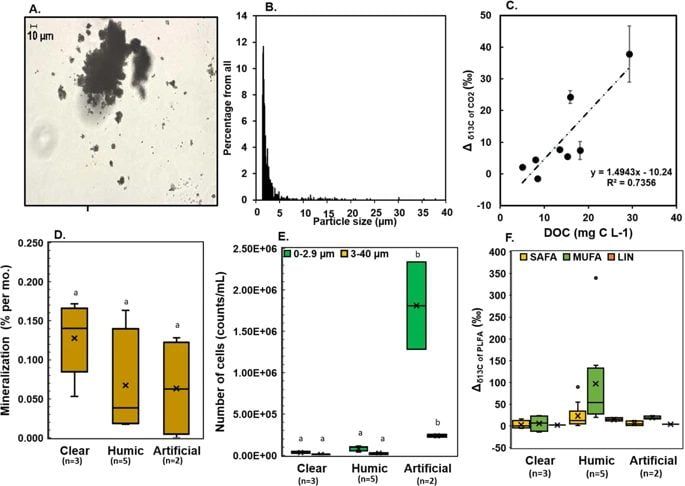Scientists found out that some microbes can turn microplastics into fat. Plastic waste decomposes in the nature for a very very long time, which causes concern. However, researchers have not yet fully studied the possible types of biodegradation of plastic, so it is possible that some microorganisms can cope with the problem. Scientists recently discovered a rather interesting phenomenon.
Biologists from the University of Jyväskylä in Finland have stated in an article published in Nature Magazine, that microbes in humic lakes can create Omega-3 and Omega-6 fatty acids from microplastics. Fatty acids, including Omega-3 and Omega-6, are necessary for the functioning of the human body. Scientists found this out by labeling microplastics with carbon isotopes and observing the movement of polyethylene in the nature.

Humic lakes are reservoirs in which humic acids formed during the decomposition of dead plants, that predominates to organic substances. Of course, microbes are involved in this process. Scientists were interested to know whether these same microorganisms can cope with plastic. As it turns out, they can transform microplastics into fat.





